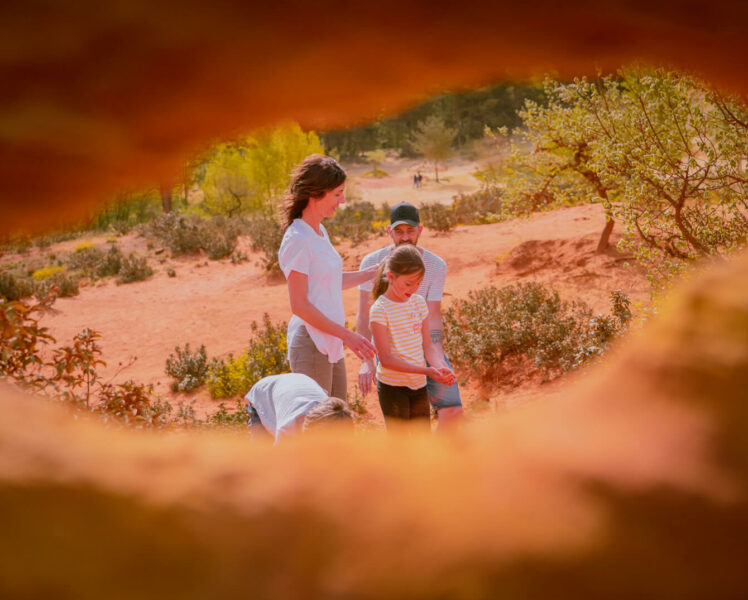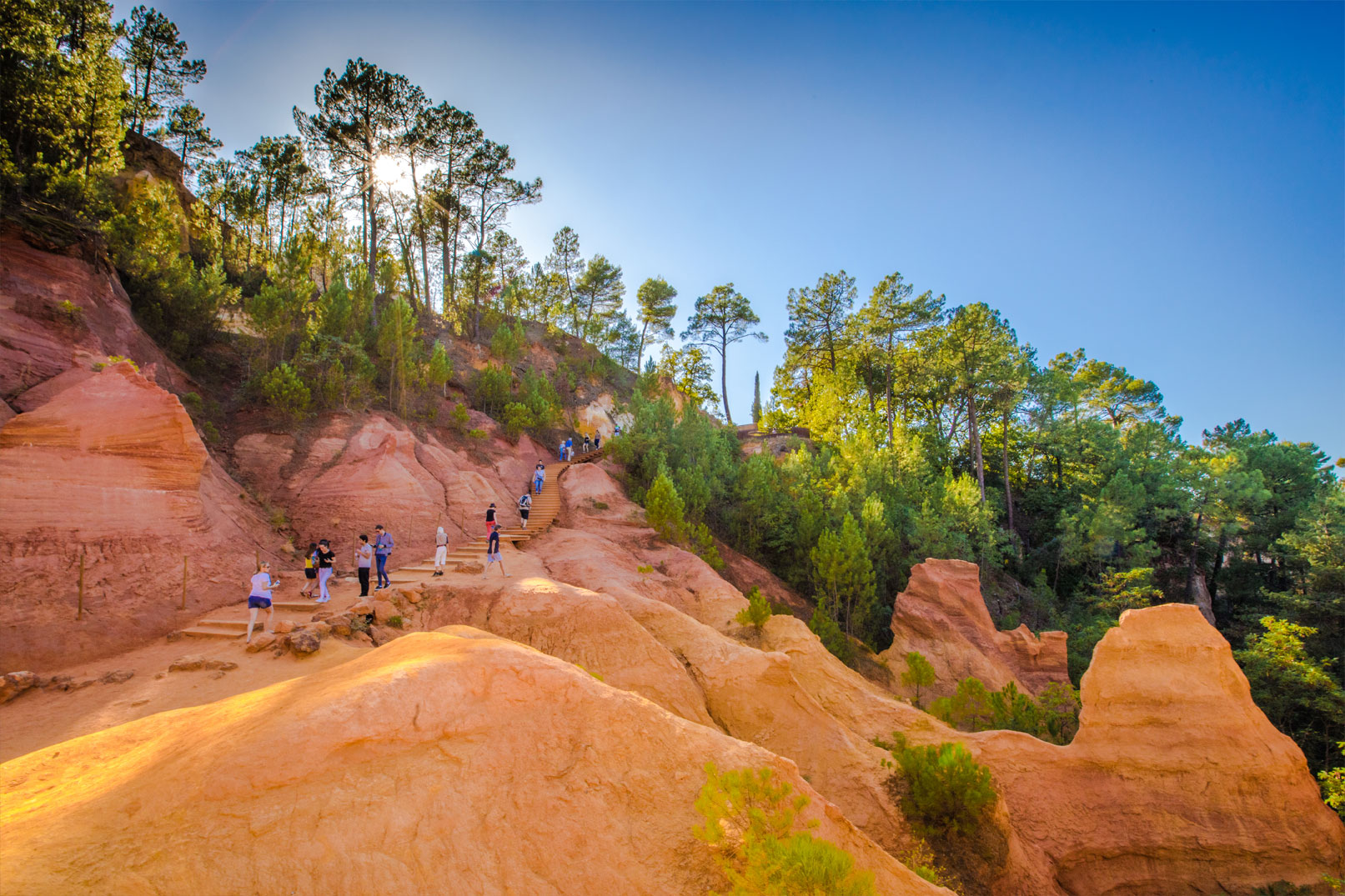
The ochre landscapes of the Luberon
a Provençal treasure
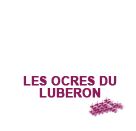
Country of fire and land of light – the Luberon‘s ochre landscapes are the pride and joy of locals, and we can certainly see why! A unique site in France, the ochre landscapes stretch across nearly 25 km and are a classified and protected territory.
Shades of incredible colours
What exactly is ochre? A mix of clay, quartz and oxides, this rock owes its sandy appearance to its history.
More than two hundred million years ago, Provence was underwater. Following changes in the climate, the ocean went down leaving the ochre sands that we know today.
Worthy of only the best painters’ palette, the Luberon’s ochre landscapes are made up of more than 24 different tones, from a soft and tender yellow to a bold and intense reddish brown.

Top tip
Wear old, dark clothes when you explore the ochres of Roussillon. Ochre is a very powerful colour and it’s practically impossible to get out of your clothes!
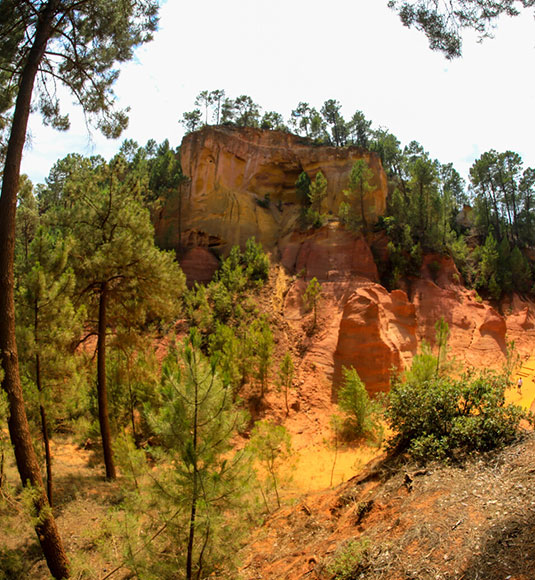
An open air Western film set
When you walk through the Luberon’s ochre landscapes, you would almost expect to come across Clint Eastwood and other cowboys on the path…
And for good reason! The scenery forged by geological formations, created by the force of nature and humans, seems to have come directly from a film set in the Wild West.
With nearly 1000 km of signposted pathways, spread out across 9 sites, ochre truly is the beating heart of the Luberon.
From Rustrel’s Provençal Colorado to the Mars-like red ground of the ochre footpaths in Roussillon, let your imagination run wild!

Firm favourite
Put your best pair of cowboy boots on (don’t worry, an old pair of trainers will also do!) and set off on your journey through the Luberon’s ochre lands – prepare to be amazed.
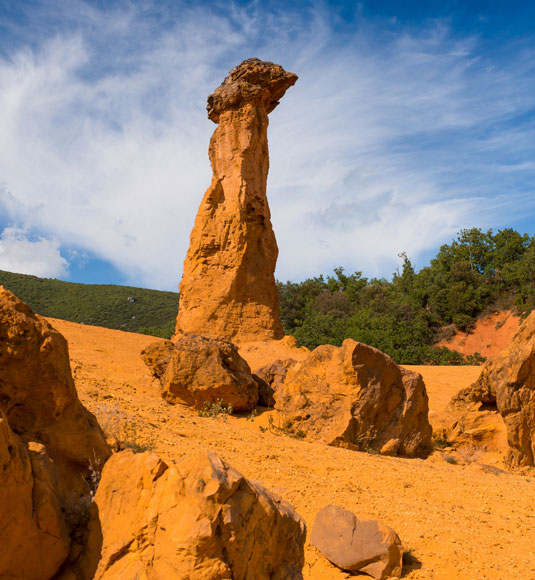
The uses of ochre
Ochre and Vaucluse – a love story which has lasted several centuries. And to understand the inhabitants’ attachment to this special landscape, the best thing to do is go back in time to the 18th century and the first ochre mine in the Luberon. It is incidentally by visiting this charming little village that you can admire the orange facades so representative of the region!
Want to know more? The Conservatoire des Ocres et de la Couleur in Roussillon, formerly an ochre factory, offers activities and exhibitions all about this iconic rock.
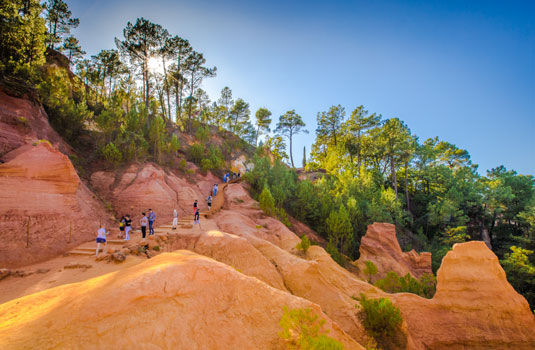

Did you know?
Of course, even today ochre can be found in paintings and building-related products, but it can also be found in certain cosmetics and in food (cheese rind for example).

